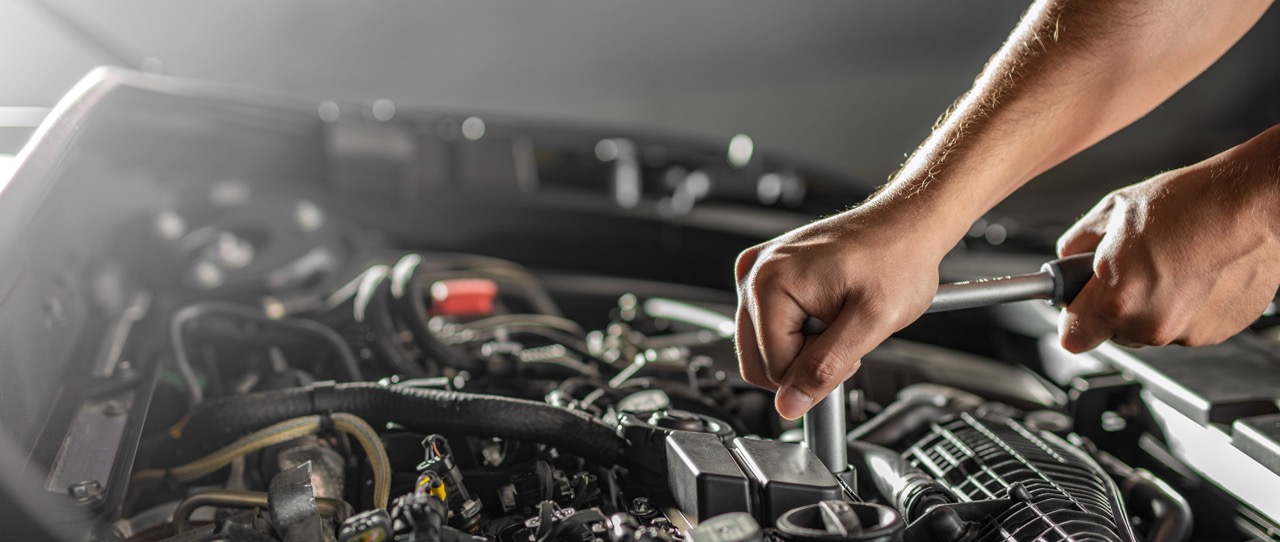
The engine is the most important component of a vehicle. It can be difficult to pinpoint the source of your engine’s problem. If you notice any indications that something is wrong with the engine, you should inspect it. Some common engine problems can result in severe damage if not addressed immediately. We’ve put together a list of the most common reasons for engine repairs.
1. Engine won’t start
It’s one of the most frightening and common engine problems. Your engine oil bears a great deal of responsibility. The oil lubricates the engine, cools the engine parts, keeps the engine clean, and prevents deposits from forming. As the oil ages, it begins to fill with sludge and debris. Contaminants are removed along with the old oil and filter when you change the oil.
The catalytic converter is an essential component of your vehicle’s exhaust system. The catalytic converter degrades hazardous chemical emissions from the engine and directs them away from the driver. The catalytic converter can fail due to a rust or corrosion leak or internal plugging caused by excessive carbon buildup. Regular maintenance checks will ensure that the entire exhaust system is in good working order.
Other common reasons engines fail to start:
- Low battery
- Damaged fuel pump
- Neglecting regular oil changes
- Dirty or clogged fuel filter
2. Overheating
Overheating your vehicle puts it at risk of mechanical problems. A coolant leak from the radiator or a radiator hose is a common cause of overheating. Overheating can also be caused by a faulty thermostat, a faulty electric cooling fan, or a failed water pump.
3. Service engine light
If a fault is detected by one of the sensors connected to the emission, engine, or powertrain controls, your vehicle will display a “Service Engine Soon” light.
Common reasons for a check engine light to come on:
- Loose gas cap
- Poor fuel quality
- Electronic control failure
- Emissions control problem
4. Failing oil pump
The failure of an oil pump is extremely dangerous to the engine’s lifespan. If an oil pump fails, the engine will almost certainly be deprived of necessary lubrication. Symptoms of a bad oil pump include:
- Low oil pressure
- Increased engine temperature
- Odd noise coming from the oil pump
Regardless of how durable the oil pump is, some oil pump failure results in oil contamination, progressive wear and tear, and other problems. When oil pumps fail, you should expect to notice all of the symptoms listed above, which will worsen gradually and eventually lead to engine failure.
One of the most important components of a vehicle’s engine is the oil pump. It provides oil at the required pressure levels to adequately lubricate the engine’s bearings and other mechanical parts. The oil is responsible for temperature regulation to avoid overheating as well as providing lubrication and allowing the mechanical engine parts to rotate efficiently. As a result, every car owner should be on the lookout for signs of a faulty oil pump.
5. Leaking engine coolant
Leaking engine coolant is one of the easier engine faults to diagnose. If engine coolant remains consistently low after being topped up, it’s a dead giveaway that there’s a problem with the cooling system. To keep your engine running safely, keep the coolant free of debris and deposits at all times.
Although the cooling system rarely requires maintenance, there are a few things you can do to avoid coolant leaks and costly repairs. To keep the cooling system in good condition, you can regularly check the level of coolant and often check for leaks.
These are some of the most common engine repair issues. Master Muffler’s experts can assist you in diagnosing the problem and providing cost-effective repair options. Our shop, located in Provo, Utah, is dedicated to ensuring that your vehicle’s maintenance is up to date and that it runs smoothly.
Related Posts
Key Takeaways On average, passenger vehicle tires last 40,000 to 60,000 miles, depending on type, driving habits, and maintenance. Replace tires when tread depth reaches 2/32”, if damaged, or older than 10 years. Regular rotation, alignment, and proper inflation extend tire life. Aggressive driving, poor roads, and harsh weather shorten tire lifespan. Take advantage [...]
When you think about car maintenance, you probably focus on oil changes, tire rotations, and maybe even brake pad replacement. But what about your brake fluid? If you’ve ever wondered, “What does brake fluid do?” or “Why is brake fluid important?”, you’re not alone. Brake fluid might not be the most talked-about part of [...]
Is that high-pitched squeal from your brakes driving you—and everyone else—crazy? Don’t ignore it. Squeaky brakes aren’t just annoying, they’re your car’s way of saying something needs attention. Whether you're cruising through Salt Lake City or winding up Idaho’s mountain passes, here’s what’s likely going on, how you can fix it, and when it [...]





